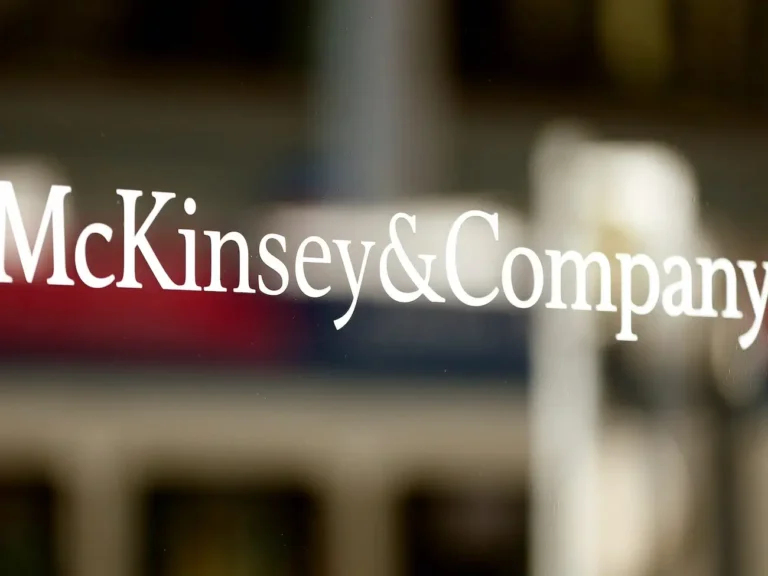Shopify’s ecosystem is about to face a major test: Large partners like Klaviyo are eying an IPO, while smaller startups may struggle to compete

- Shopify’s App Store is maturing, with more than 10,000 apps for merchants to download.
- Shopify invested in some of its biggest partners, some of which are considering IPOs.
- It’s getting harder for smaller app developers to stand out from the competition.
As Shopify’s app ecosystem matures, some developers and partners are facing a make-or-break moment.
Shopify’s App Store contains over 10,000 apps that merchants can use to assist them with functions such as marketing, shipping, and store design. Thanks to accessible developer tools, a plethora of community events, and a favorable revenue-share model, it’s a competitive advantage for Shopify and a place where developers of all sizes can thrive.
It’s an exciting time for the largest and most successful companies in the Shopify ecosystem. Klaviyo, an email and SMS marketing startup, has reportedly filed for an IPO on a confidential basis, and more startups may follow suit. If they are successful in the public markets, it will be a good sign for the Shopify ecosystem. Shopify has also increased its investments in its most successful ecosystem companies, such as Klaviyo and Yotpo.
Meanwhile, the dynamics are complicated for smaller businesses because Shopify launches its own solutions that may compete with partners. Some are concerned that new providers will find it more difficult to break into an increasingly competitive market.
All of these factors, combined with ongoing economic uncertainty and merchant cost-cutting, are a wake-up call for third-party developers: it’s time to level up.
Upcoming IPOs will be a test.
Some Shopify ecosystem companies are considering going public, despite the fact that IPO activity has been slow this year. Yotpo, a retention marketing platform, and Shopify’s logistics partner Flexport have both been the subject of IPO rumors for several years. Attentive, which creates SMS marketing software for online sellers, has stated that it plans to go public within the next one to two years.
“While we are in a great place in terms of revenue growth and cash on hand, we will want to ensure that market conditions are favorable and that we are doing what is best for our employees and investors,” Attentive CEO Amit Jhawar told Insider.
When Klaviyo makes its public-markets debut, which Reuters reported could happen as soon as September, all eyes will be on it. It would be the first IPO for a startup that arose from the Shopify ecosystem. A Klaviyo representative declined to comment on reports that the company had filed for an IPO on a confidential basis.
A Klaviyo IPO, according to Ben Parr, president and cofounder of the personalized-marketing startup Octane AI, would be a bellwether for the entire Shopify ecosystem.
“If they do an IPO, investors will start writing more checks in the space,” Parr predicted. “If they don’t pop and the market is bearish on them, then it will send a negative signal to the ecosystem.”
While COVID-19 lockdowns boosted the entire e-commerce industry, a return to normal shopping habits has resulted in a retrenchment. Economic uncertainty has prompted retailers to rethink their technology, reducing costs wherever possible. This will make it even more important for Shopify’s app partners to differentiate their solution from competitors.
According to Parr, many consumer apps and brands, including those in Shopify’s orbit, are not profitable.
“They’re going to have a really difficult time if investors sour further on investing in the space,” he said.
A’shared focus’
Shopify Ventures, its own venture arm, recently launched a website focusing on companies that build software for Shopify’s merchants. It has stakes in Stripe, Yotpo, and Flexport, all of which have been mentioned as potential IPO candidates in the coming years.
Previously, Shopify invested in Affirm shortly before it went public, netting the Canadian e-commerce company a $2 billion windfall from the IPO of the buy now, pay later software provider. It also acquired a 6.5% stake in Global-e before its initial public offering in May 2021. Shopify also invested $100 million in Klaviyo in 2022.
“When our ecosystem app developers succeed, so do our merchants,” said Sid Murlidhar, Shopify’s director of ecosystem partnerships. “This shared focus is why we’re committed to ensuring a healthy Shopify ecosystem that fosters innovation, scale, and speed.”
Competing with partners
Shopify unveiled over 100 new product updates at the Shopify Editions product event in July, including apps like Shopify Subscriptions and Shopify Collective that could compete with partners.
This tension exists in many tech companies that work with third-party software, but this isn’t the first time Shopify has been accused of stifling competition in its ecosystem.
“With all major app ecosystems, like Shopify’s, there is a balance between building core features for your platform and relying on strong partnerships,” Jhawar explained.
Shopify appears to be aware of the dynamic at work. Glen Coates, Shopify’s vice president of product, stated during Editions that the subscription app is intended to be basic and that merchants with more complex needs should look to a “great collection of subscription apps on the Shopify App Store.”
It may be more difficult for smaller software companies to stand out, especially if Shopify launches a competing solution. Shopify’s new Collective tool may compete with Convictional, a startup that assists retailers in quickly onboarding vendors on their websites.
“It’ll become really difficult for new entrants, new app providers, to come in and build a track record for entrepreneurs, mom-and-pop shops who are looking for something that’s basic in functionality,” said Chris Grouchy, cofounder and president of Convictional.
At the same time, Convictional cofounder Roger Kirkness stated that less than one-third of Convictional’s customers are on Shopify, and that competition is a “good thing” because it exposes smaller sellers to a problem that Convictional is attempting to solve.
If Shopify wants to be successful in the long run, it needs to become a “curator” of tech solutions, according to Rick Watson, CEO and founder of RMW Commerce Consulting. As a result, its core software offering cannot fall behind.
“They should always ask themselves, ‘If I were to rebuild Shopify today, how would I build it?'” he said. “If the answer is that everyone now expects this new feature that no one knew about five years ago, then they do kind of need to build it.”






